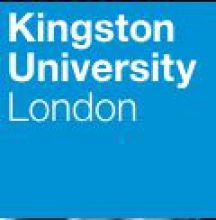Brexit was a shock result for many and after weeks of negative discussion about the possible impact on higher education, it was a relief to read a pragmatic response by Nick Hillman, director of the Higher Education Policy Institute (“Hepi director: Brexit may bring ‘new opportunities’ in sector”, News, 12 July).
As well as the possible opportunities highlighted in the article, there are other factors to consider. If the euro becomes stronger than the pound, could the UK become a more financially viable and desirable place for European Union-domiciled students to study? If the UK is not tied to the Bologna Agreement, will this provide EU students with more beneficial study opportunities in the UK compared with their own country?
EU students are important participants in UK higher education and for many universities they constitute a substantial number of their student body. However, it is also important to note that EU participation in the UK in terms of the overall student body is relatively small. Statistics from the Higher Education Statistics Agency show that, since 1994, EU undergraduate enrolments account for 3 to 4 per cent of all undergraduate enrolments and 7 to 9 per cent for master’s degrees. When the UK did not adopt the euro in the mid-1990s, there was concern that EU participation in higher education would decline. In fact it has increased proportionally in terms of enrolments.
There are pitfalls with everything and we need to discuss them and take them into consideration. As well as Brexit, two other major concerns for us in the UK are the continuing decrease in higher education funding and the pitfalls and potential impact of the teaching excellence framework.
But change also brings the chance to shape, create and innovate. I would like to read discussion and ideas on how we can move forward positively and quickly to secure and sustain higher education, leaving it stronger and healthier than it was before Brexit.
Michelle Morgan
Kingston University
Send to
Letters should be sent to: THE.Letters@tesglobal.com
Letters for publication in Times Higher Education should arrive by 9am Monday.
View terms and conditions.
Register to continue
Why register?
- Registration is free and only takes a moment
- Once registered, you can read 3 articles a month
- Sign up for our newsletter
Subscribe
Or subscribe for unlimited access to:
- Unlimited access to news, views, insights & reviews
- Digital editions
- Digital access to THE’s university and college rankings analysis
Already registered or a current subscriber?


